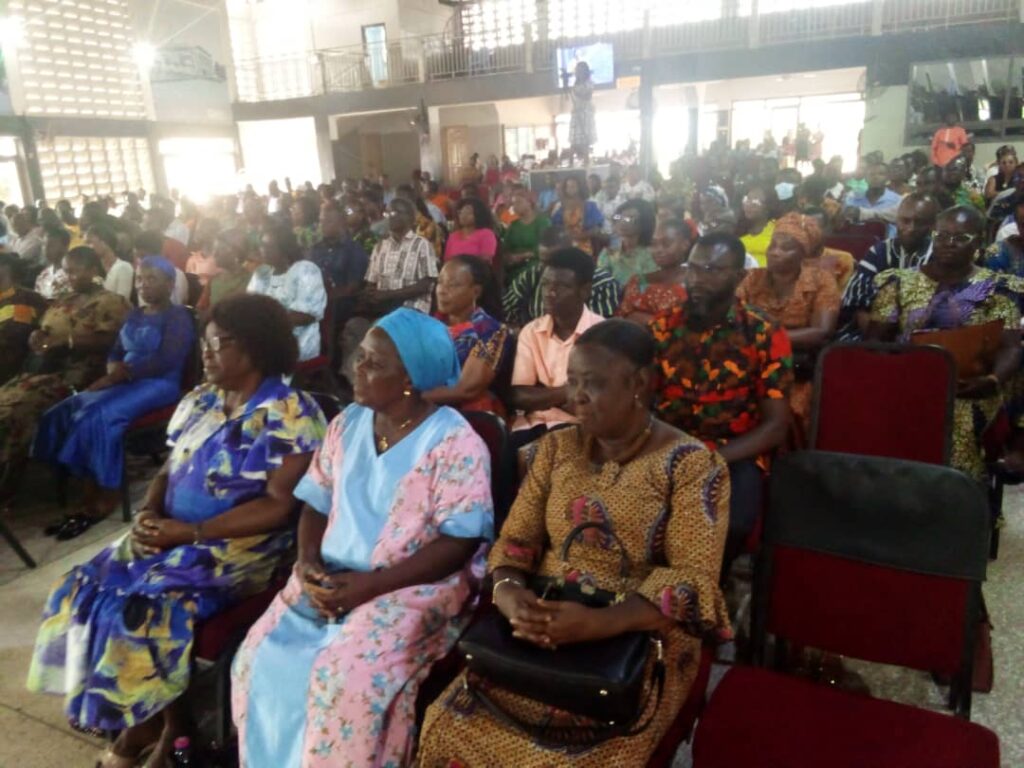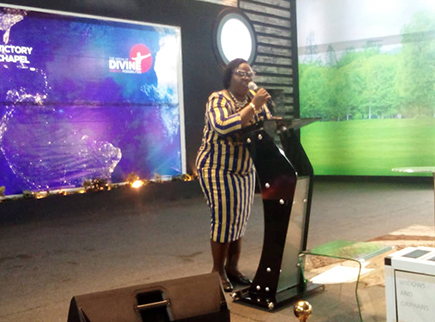Justice Angelina Mensah-Homiah, a Justice of the Court of Appeal and National Coordinator of the Alternative Dispute Resolution (ADR) Programme, has held a community outreach campaign across selected churches in Ho as part of this year’s ADR Week celebrations.
Her sensitisation tour took her to the Global Evangelical Church – Victory Chapel at Ho-Fiave, the Assemblies of God Christ Family Chapel (Ho Power House), and other congregations in the Municipality.
Addressing worshippers, Justice Mensah-Homiah said the nationwide outreach, instituted by the new Chief Justice, is aimed at educating the public on the benefits of choosing mediation as a faster, cheaper, and more peaceful alternative to litigation.
She explained that ADR provided ordinary citizens including widows, widowers, parents in child maintenance disputes, couples experiencing marital conflict, and business owners with an accessible and less stressful avenue for resolving disagreements.
“Litigation is very expensive and time-consuming,” she stated.
“Some people can hardly afford a meal a day, yet they have genuine legal problems. When you insist on litigation, you spend time, money, and energy in court at the expense of your business, your children, and your peace of mind.”
Justice Mensah-Homiah outlined the Judicial Service’s efforts to mainstream ADR across the country.
Court-Connected ADR units have been established nationwide, enabling litigants to request mediation at any stage of their case.
Once both parties consent, a neutral government-paid mediator facilitates discussions to help them reach a mutually acceptable resolution.
She walked the congregants through each step of the mediation process, from signing a consent form and selecting a mediator including the option of virtual mediation to ensure privacy to negotiating fair compromises.
She contrasted the speed of ADR with the delays associated with litigation, noting that a land case could travel through the district court, High Court, Court of Appeal, Supreme Court, and even the review stage for up to 20 years.

Meanwhile, the same case could be resolved through ADR within days or weeks.
Justice Mensah-Homiah also highlighted the practical limitations of litigation, saying, “You may win a judgment, but if the person has no assets, enforcing it becomes meaningless,” she said, underscoring the efficiency of mediated settlements.
She revealed that more than 40,000 cases have been resolved through ADR since its introduction in 2005, helping significantly to reduce the backlog of cases in the courts.
Despite ADR’s advantages, she clarified that certain matters such as murder, robbery, rape, defilement, manslaughter, and constitutional issues cannot be settled through mediation.
However, most civil matters, including land disputes, debt recovery, family issues, business disagreements, and landlord-tenant conflicts, are all suitable for ADR.
“When you settle through ADR, the agreement is submitted to the court and adopted as a consent judgment. You cannot appeal against your own agreement, so it brings closure and peace,” she added.
Congregants later asked questions for further clarification with many expressing appreciations for the practical and simplified explanation of ADR.
Pastors of the Churches visited thanked Justice Mensah-Homiah and her team for bringing the sensitisation exercise to the community, noting that the public now has a clearer understanding of the value and processes of alternative dispute resolution.

